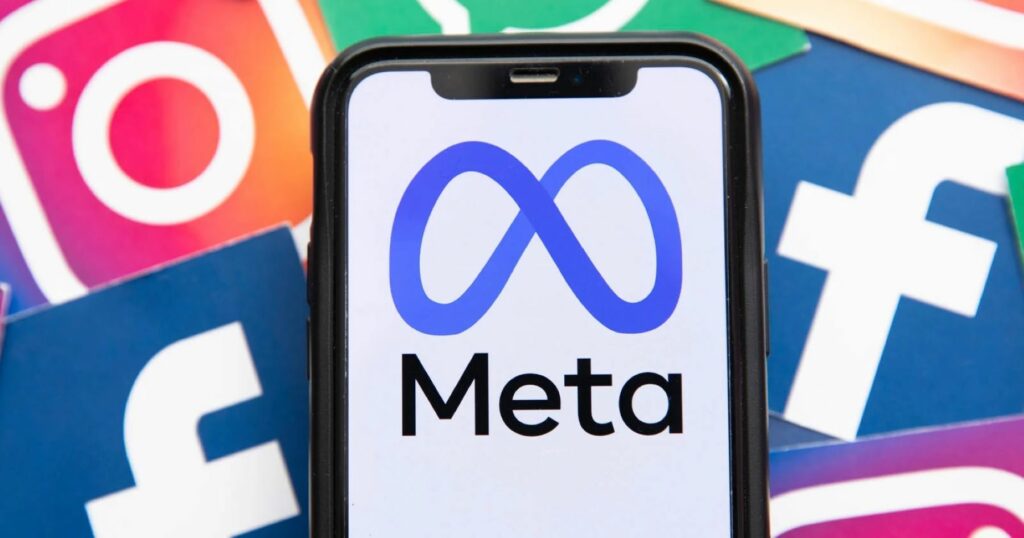It’s hard to escape the conversation around AI these days. This is why earlier this year, we listed it as one of the biggest African tech trends to look out for in 2024. And explored some of the challenges, Google is trying to address with AI on the continent. Meta (formerly Facebook) has also become deeply engaged in its AI efforts. The tech company recently launched its new feature, Llama 3, a new AI assistant designed to improve social connections, engage in conversations, and make suggestions. The Meta AI assistant utilizes real-time search results from Bing and Google and has image generation capabilities that enable users to create animations and high-resolution images while typing. It is available at meta.ai. the web version that works similarly to ChatGPT. It has also been integrated into all Meta platforms.
The Llama 3 was only available in the United States until last week, when Meta made it available in several African Nations- particularly, Ghana, Malawi, Nigeria, South Africa, Uganda, Zambia, and Zimbabwe. The tech giant plans to expand into additional countries and languages. According to Meta CEO, Mark Zuckerberg, “With LLaMA 3, Meta AI will now be the most intelligent, freely available assistant.” However, the enthusiasm around this new feature remains subpar.
Recall that last year, Meta launched Threads. It was meant to be a Twitter clone that Meta launched as a companion to Instagram, the popular photo-sharing network it bought over a decade ago. Threads gained over 50 million users on its first day, signaling that many people were excited about its launch. Unfortunately, Meta’s launch of Threads fell short of expectations. Barely a month after its launch, the app’s daily active users dropped by 80%. Mainly because users found it limiting and lacking in functionality. This disappointment fueled a lower bar for future features and products from Meta.
However, the lukewarm reception for Llama 3 can’t be solely attributed to the failed Threads app. In 2022, Meta also garnered immense hype for its grand vision for the Metaverse, a fully immersive virtual world. The tech giant rebranded from Facebook to Meta – a new name to focus on building the metaverse. The hype surrounding the Metaverse created unrealistic expectations about its immediate applicability and benefits for users, especially in developing regions like Africa. There were conversations about the potential applications of the Metaverse in areas like education, work, and entertainment, but lacked concrete implementation plans.
Nevertheless, Meta might be taking a different approach with this AI product. For one, instead of focusing on making it a stand-alone app, the tech giant is taking the integrated approach. Popular multimedia instant messaging app, Snapchat used the same approach. Last year, Snapchat successfully rolled out “My AI”, its ChatGPT-powered AI chatbot. This integration had a profound impact on user engagement. As of January 2024, Snapchat’s subscription reached 7 million paying users, up by 2 million since September 2023.
Meta has also been more transparent about the capabilities and limitations of the new feature compared to the initial hype surrounding Threads. Meta’s AI has several features designed to enhance user experience across Meta’s platforms. The AI assistant utilizes real-time search results to provide users with additional context and information about their Facebook feeds. This can facilitate more informed discussions and deeper engagement. It also fuels creativity with image-generation capabilities. On WhatsApp, the AI can generate high-quality images with improved text inclusion, as well as provide useful prompts for image changes. Users can access Meta AI while scrolling through their Facebook feeds, allowing them to request more information about a specific post.
Africa, (like most parts of the world) is rapidly embracing AI. In 2022, African startups attracted over $1 billion in venture capital funding for AI-related ventures. Africa also boasts a significant talent pool for AI development, with over 40% of Africa’s population under the age of 15. Countries like Nigeria, Rwanda, Kenya, and South Africa have established national AI strategies and are investing in research and development initiatives. Last year, Nigeria took significant steps in inviting scientists of Nigerian heritage and renowned global experts to collaborate on the formulation of its National Artificial Intelligence Strategy.
Meta’s AI also has an opportunity to stand out among African users. Facebook is the leading social media platform in Africa in terms of market share. Meta has more than 2 billion active daily users, with about 271 million Facebook users and a projected growth to over 377 million by 2025. Many people utilize WhatsApp, Facebook, and Instagram to create content and promote their businesses. Meta can also tailor its AI to address issues relevant to African users. This could be anything from language support for local dialects to solutions for information scarcity. Last month, Meta announced its plans to launch monetization features for content creators in Nigeria and Kenya, in June 2024. Its new AI feature represents another opportunity to show they’ve listened to user feedback and can create a valuable tool for its African market.
Source link : https://venturesafrica.com/can-metas-new-ai-feature-deliver-in-africa/
Author :
Publish date : 2024-04-24 07:00:00
Copyright for syndicated content belongs to the linked Source.
